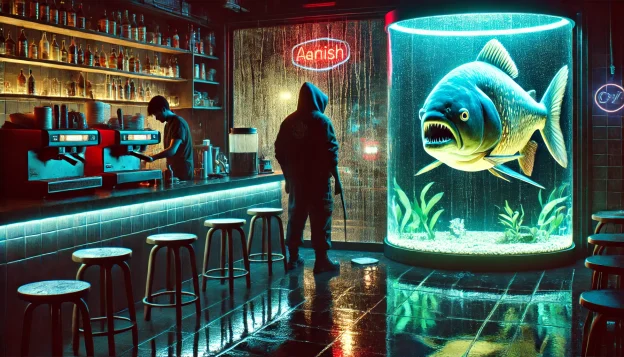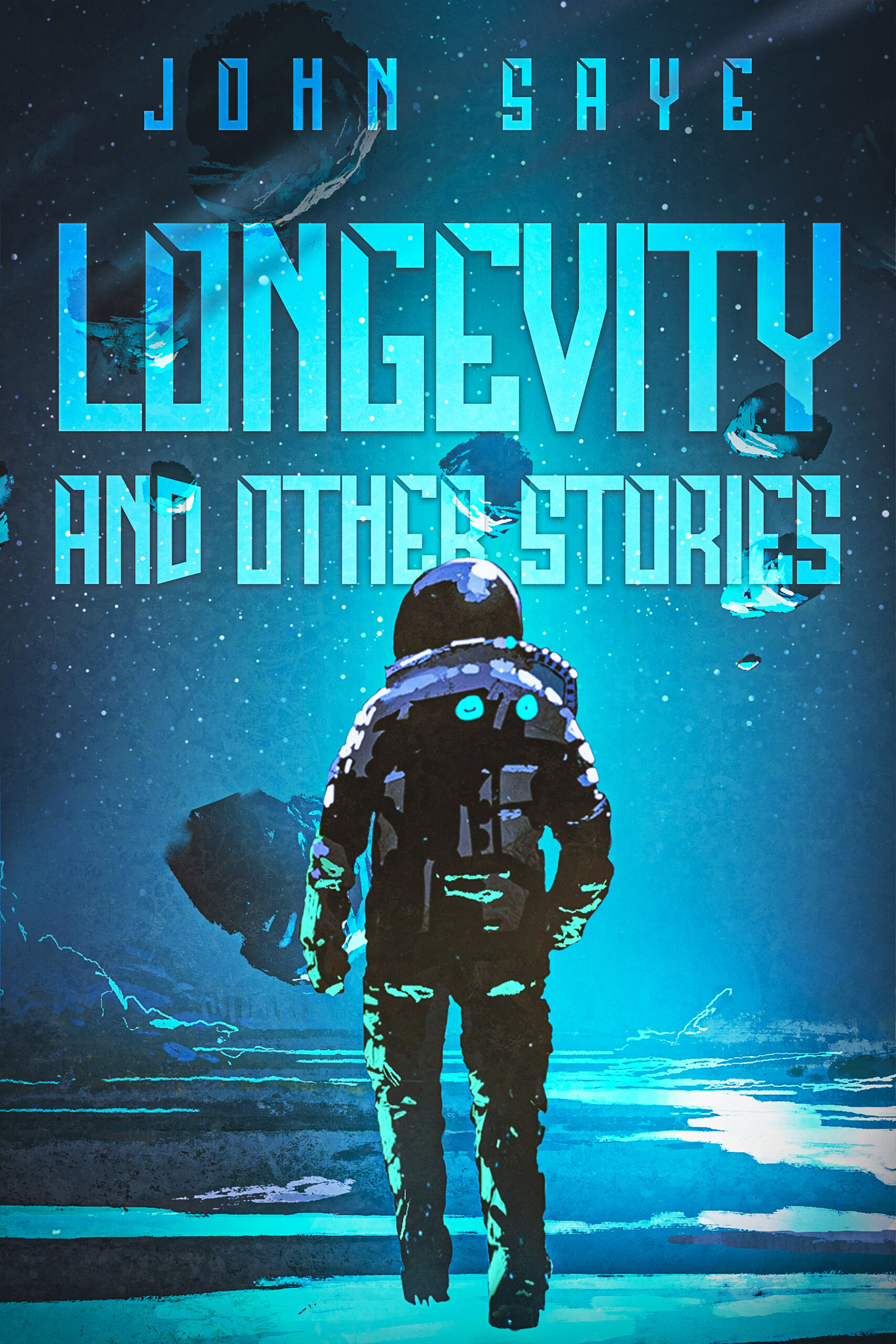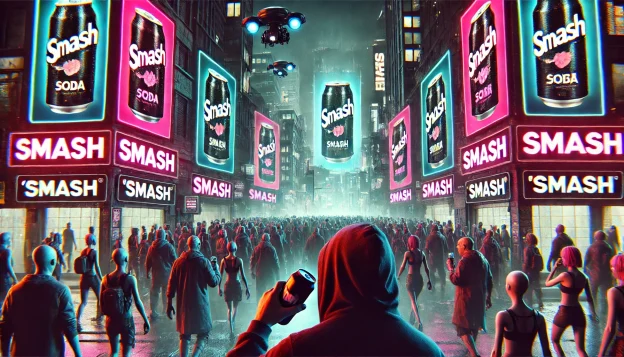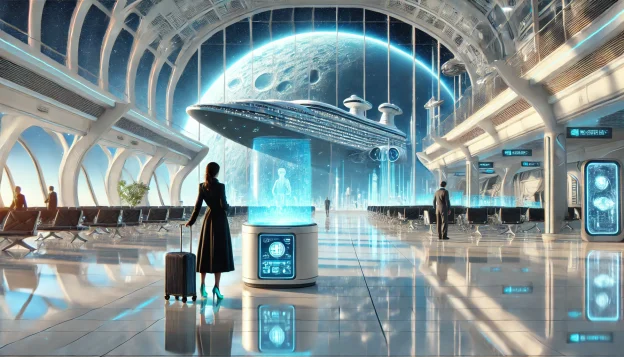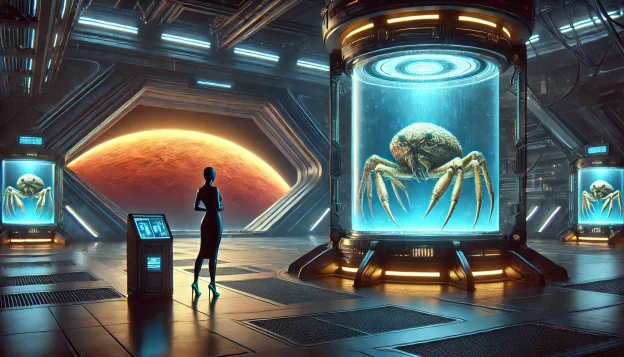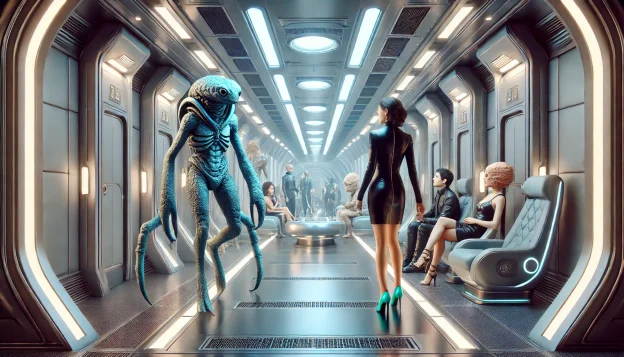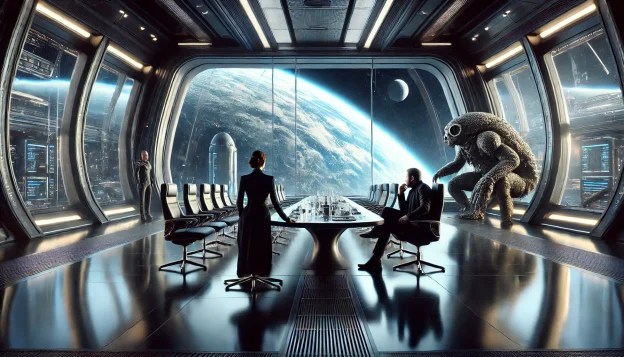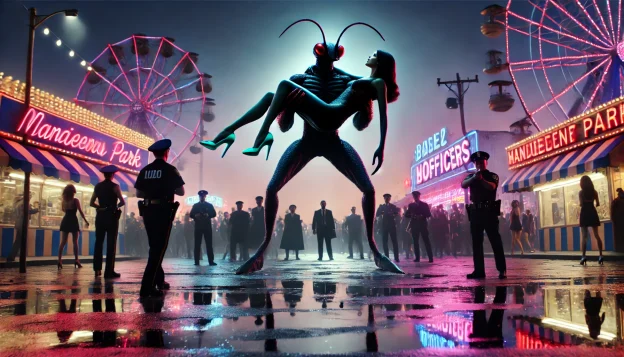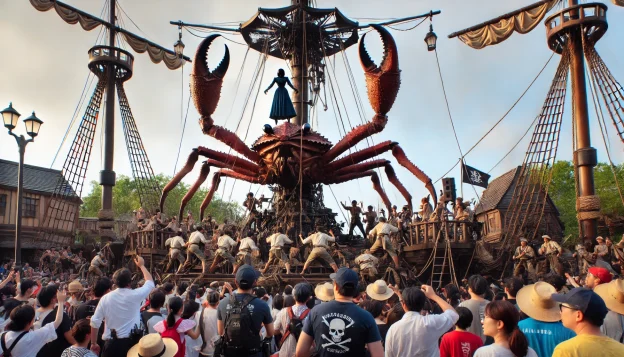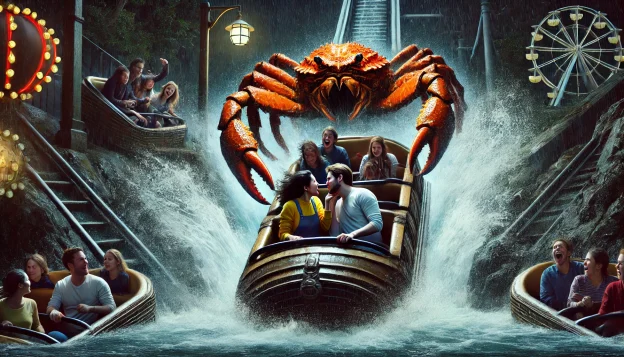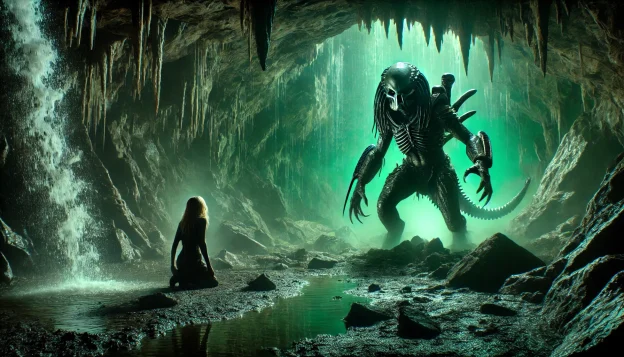This is a draft version of a chapter from John Saye’s book, Longevity and Other Stories. If you are daring, why not subscribe to my newsletter (they come few and far between), and I’ll send you a PDF copy of the book?
Here’s the thing: It was everywhere. You couldn’t go anywhere without seeing it. It was on every billboard, in a commercial every fifteen minutes on television – it didn’t matter what channel you were on – and popping up on the side banners on your favorite websites. It didn’t matter if it was smut, children’s learning games or a catalog of chemicals to treat your new above-ground pool, it was there. You just couldn’t get away from it. I like to think of it as insidious, creeping into your life in a way you never suspected, until it was too late.
For me, that time came way too soon and for many, they never saw it coming. They just drank the stuff, and in the end they didn’t know exactly when it tipped the scales and dominated our very thoughts, and peered into our minds and souls.
To us, it was just a drink. No problem, right? It was a fancy beverage that came in a can. You popped the top, and you could feel the light spray as the gas released with the in-rush of air. A fresh scent would fill the air that smelled of caramel. It was laced with one of a dozen flavors. It fizzed. The bubbles tickled your nose. It was nice.
My favorite was always the Cherry Smash, but there was also Ginger Smash, a strong Blueberry Smash (almost bitter) and a variety of other fruit flavors. There was a lime variety, deep, rich and tangy. You wanted to drink them from the can, though. You could pour them over ice, and that tasted quite good, but in order to preserve the illusion, almost everyone drank them directly from the can.
You didn’t want to look at the stuff.
All of them were dark-dark black with a hint of visible bubbles. On the surface of the drink, were you to pour one into a glass and just let it sit there for an hour while the bubbles dissipated, you could see a slick of oil that clung to the surface. Sometimes it was slightly green or red, but every time there was the hint of ick that failed to please the eye. Something always seemed to be missing from it, but it was just hard to put it down, or rather hard not to knock them back, one after the other. It was all anyone drank. Some folks even liked to mix the flavors up in a thermos full of ice, and drink it from a built-in straw, but that was never my style, at least at first.
I took it straight, preferably from the can, and as cold as I could get it. I’d line them up, and tell myself they were snacks, and that I’d earned them somehow. But that meant nothing.
We used to make fun of people for drinking water. With a can of Smash, what did you need it for? It was perfectly hydrating and fortified with eighteen essential vitamins and minerals, and balanced so that you could drink six of them a day. At least that’s what the commercials said, and we did. I used to drink one for breakfast, yes that was the line they used to feed us, that it was part of a balanced breakfast, and everyone should have a Smash in the morning, have one at night, have one with your dinner, and relax with one during an evening’s soak in the hot tub.
If you drink it, you’ll be skinny. If you drink it, you’ll be beautiful. If you drink it you’ll meet your fantasy lover. If you drink it, then your life will have meaning.
Without it, you will not feel complete. You’ll have longing feelings for people you haven’t seen in years. Your heart will plummet, and your soul will scream. You’ll pine for them, and they will call to you. You’ll misstep at the grocery counter, and break the eggs. You’ll slam your finger in the car door. You’ll catch a cold and feel miserable. Without it, you’ll never keep your diabetes in check. Without it, you’re at risk of heart disease. Without it, you’ll have trouble breathing. Without it, you will die.
You must have it.
You must drink it.
There are no other drinks.
Ours alone.
It’s all you need.
Come and have a sip.
We’re trying new flavors all the time.
We’re all you’ll ever need.
Before long it became illegal to drink anything else.
I tried tea for a while, which I purchased online with a stolen credit card, and quickly found myself a nervous wreck. People looked at me funny when I ate lunch in the park. They kept asking if I was okay, did I need anything, did I feel fine? Apparently, I looked a little pale. Was there something that I wanted to tell them? Did I have a problem? Was I suicidal?
I didn’t think I was, but the stares and the questions unnerved me the most. I went back to drinking it, but I went for the light versions. Certainly they wouldn’t have as much of a hold on me, would they? I did it for them, for everyone around me. I drank it, and I felt the fizz on my nose, and I smelled the crisp, bright flavors on my tongue. It was like silk running down my throat, but it had such a tremendous bite as well. It was wonderful. I felt like I was part of the world again. Certain things came back into focus. I realized I could see certain colors again, and with vivid richness, like the color of strawberries, fresh from picking, and the shine of chocolate with its wrapper just peeled.
Without it, everything seemed dull and lifeless.
I could hear depth to music that I could not remember.
I drank and drank and drank.
Before long, I was almost living on it, eating just enough food to get by. I was wasting away, but I didn’t even realize it. Funny thing about the Smash. On it, your body actually starves while you are at the same time putting on weight. It’s a vicious cycle, and while you’re drinking the stuff, you’re convinced that you feel better, that the world is a fresh bowl of petunias, like you are on top of the world, and that what you have to say matters to everyone around you. You’re one of them right? You belong, as long as you continue to pop those tops, and drink the drink.
I tried to put it away again. This time I took a vacation. I would eat meals that were satisfying, whatever that meant. I’d look it up on the Internet, if I could find a reference to life without the Smash, and I’d drink nothing but water.
I even had to buy a glass to drink it with.
I realized that with all the cans, and drinking nothing else, I didn’t even own a glass.
I bought six and lined them up.
I filled each of them with water and stared across the kitchen table at them.
They hated me.
I reached out to take one, and the touch of the glass burned my fingers. At least that’s how it felt. I tried to hold on, but dropped it on the floor with a crash. I was down one glass. Water on the floor. I’d clean it up later.
I reached out again and gripped the second glass. A spasm wracked my body, and I quickly put it down again.
I retreated to the couch and watched them, the glasses all neatly lined up. A sparkle of sunlight streamed in behind them and scattered on the counter. Did that work with the Smash? Would that ever?
I approached them, and took one from the counter, and brought it to the table with me. Maybe one at a time it would be easier. I sat there, both feet up in the chair, and bit at my nails. I reached out and picked up the glass, this time using my elbows on the table to steady my arm, and I found I could support its weight. It had no real pull on me.
I sipped it.
The taste filled my mouth.
It was delightful.
It was devoid of any flavor. It was clean and satisfying in my mouth. It had no bite. There was no harshness in the back of the throat. I missed the bubbles, but their absence made it easier to swallow. You can read the label on a can of Smash, but you can’t tell what’s really in it. Only a chemist with a Master’s Degree really has a chance, and at that, there would be some hefty research to go through before you could get down to the truth.
I drank it down and found only at the last minute did I want to spit any of it out. What would people say? He drinks water? Is he mad? How would I be perceived at work? What would my mother think? Would I be able to go to a social function again? How would I survive?
The glass didn’t break this time, of that I was glad, but I wondered.
There was only one variety, well twelve, but there was only Smash to drink at work. You couldn’t get water in the bathroom even, since you just shoved your hands under sonic washers these days. Smash was the only ticket in town.
I took the third glass, and raised it to my lips, and stood in the window of my kitchen, and drank it. I didn’t falter. I didn’t cry. I didn’t shake. I was calm, perfect, and strong.
I drank it down, and for the next three hours, I stayed in the bathroom.
Three sonic showers later and forty-five minutes on the toilet, and I could come back out again.
It was then that I began my double life.
I began to drink only water, but I had to cover it up. I had to figure out how to get around without getting caught, and then I realized it. Everyone drinks from the can, or from tall closed tumblers with straws.
I ran to the gas station and bought two of the things, then went back in and bought a third. I’d fill them with water, and no one would need to know. I kept one at the house, filled all the time, and in the refrigerator. At the end of the night, they’d all live in there, topped off and ready for the morning.
I’d leave one there, for drinking at home, and take the other two with me.
One, I’d drink, and leave in the car, and the other, I’d take into work, and tell people it was my special mix of the Smash.
Some of my friends felt like I was now a member of the team. They’d all been drinking their own mixes for some time now and were happy I’d jumped in and made my own. They went through their lists: pineapple/mango, and lime/raspberry, to name a few. There were a couple of diehards that stuck to cola and to Smash lemon/lime, which was always a popular choice (though still black as pitch if you poured it into a glass) and they constantly traded recipes and combinations all the time.
One day, while I was alone with a friend, he turned to me and said “You know, sometimes, I just drink water, but I don’t tell anyone about it.”
I was shocked, but what I didn’t know was if he was telling me the truth or if he was trying to ferret me out for being the water drinker around.
“Is that so?” I said.
“Yeah, I like to live on the wild side sometimes.”
“Isn’t it illegal to drink anything else?”
“I know, but I’m a rebel.”
He tried to show me some of his recipes, which were half water and half Smash, and sometimes three quarters water. One of them involved bourbon instead of Smash. That one threw me for a loop. He had a book full of them he wanted to share. But he kept steering me back to talking about going straight water.
I told him that while it was fine for washing up, I didn’t have any real interest in it, but he persisted, until one night after work, on our way home, he looks me in the eye, and he says “I want you to come to a meeting tonight.”
“What is it?”
“It’s called Agua.”
He hands me this card, and it’s got an address on it.
He says “Be there.”
“What is it?”
“We talk about water. We talk about it a lot.”
I sipped my water, pretending it was Smash, and nodded. Without committing to anything, I pocketed the card, and carried on towards my apartment, where my cold water was already waiting for me.
The next night, I was on my way to the meeting, with my tumbler of water on a sling around my neck, and trying not to look like I was heading anywhere in particular. I was looking around enough, and soon found myself down in a residential area, looking from house to house like I was totally lost, which I was. I had my hand held to keep me on track. I sipped at it and felt stronger. While I might have been winded the last time, I tried something like this, this time I was in much better shape. I had the energy to continue on.
I found the address, and as the sun was going down and the sky was turning purple and some fog was billowing in, I knocked on the door. There were lots of people inside. They were talking and laughing. A woman answered it, slim and beautiful. She smiled, and asked if I was here for the meeting.
I said I was, and she hurried me inside, but not with the secrecy I thought she might have.
I saw my friend off in the corner who gave me the card. We nodded to each other, but he didn’t come over to talk.
The woman took my coat and brought me into the living room.
“I’m Kelly,” she said. “Got your tumbler already? That’s good.”
“What?” I said.
“Are you already drinking water?”
“Yes,” I said. It just sort of came out. I looked around for the police to raid the place, like it was wired or something.
“We’re all using the tumblers,” she said. She held her own up. It was like mine, but old and the logos on the outside were all half scratched off. “Water with lemon,” she said.
“Lemon?” I said. I must have looked like a fool.
“Yeah, sometimes I like some lemon.”
“You mean like Lemon Smash?”
“Silly,” she said. “Real lemons.”
She handed over a lemon. It was gorgeous, plump, and juicy, grown from the Earth and not just made in a lab somewhere. She shoved it in my face and held it to my nose.
It smelled so perfect and clean. There was a hint of oil on the skin that lingered on the end of my nose. I smelled it there all night, and considered never washing my nose again.
“Where did it come from?” I asked.
“We grow ’em. Come on.”
I followed her out onto the back patio of the little home where three potted trees stood. One was a small lemon tree, another a lime tree, and the third was growing little tart tangerines.
She picked a tangerine for me and pushed it into my hands.
I held it to my nose and inhaled the smell of it, allowing it to sting the back of my eyes.
“It’s yours.”
I pocketed it, and kept my hand on it, in my pocket for the rest of the night, rubbing the skin, and getting the smell of the citrus on my hands, and all over everything else I touched.
Kelly excused herself and went back into the living room and gathered everyone in there. I skirted the edges, but found out that I was not the only newcomer. There were three or four unfamiliar faces that evening, and after we were all introduced, they talked about the water.
Kelly told us about natural streams. She told stories about wells, and melting snowfall. She spoke of a time before everyone was drinking Smash all the time, and they went into the different ways they were hiding their love of water.
Some of them were hiding it in a tumbler like mine, in fact many people were. Some others had it in a thermos, which is close enough, and some of them were using cola packets, which is a way to disguise your water so that it appears black and bubbly for a short period. One of them, or rather several of them, had thumb buttons that would release the powder if they were ever checked by the police.
I’ve seen the occasional line-up. Apparently, you can get caught by the police and made to open your containers to show them that you’re actually buying. She unscrewed her cap and showed me.
“See, here.” She pointed and I could see it, a little plastic packet. “If I press this button here,” she did it and the packet fell into the water with a pop, “it will break and dissolve.” The water was getting darker and darker, and starting to bubble just a little.
“Will this fool them?”
“Most of the time.”
“What happens if it doesn’t?”
“Jail.”
Someone else cut in. “And you’ll never see another drop of non-Smash to drink again if you’re in there.”
I gulped and drank my water.
“I’ll see if I have a few.”
Kelly returned a moment later and showed me how to attach it to the inside of the tumbler. After that, I relaxed into the meeting. Everyone had a story. How they discovered water, what they did about it the first time someone caught them drinking it. One couple had tried water as a couple to see if it would enhance their love life, and they realized for the first time how lousy the Smash had made them feel.
I still wasn’t through the first real pangs of withdrawal, but others had made it through that part and assured me that the headaches only lasted for the first few weeks.
Then we watched out the window as a group, observing the people down on the street, cruising from one place to another, oblivious to their surroundings. We watched as they pushed past each other without so much as a hello or an excuse for me. We watched as they nearly stumbled their way blind through the world.
“How many of us are there?” I asked.
“There are enough of us.”
“Is it worth finding them?”
“Funny you should ask that.”
Three days later, I was closing the door on my apartment and heading out of the house for the last time. I passed the corner drugstore with its plethora of Smash posters in the windows. I left my car behind, tossing the keys into the sewer drain at the corner, and in a block or two, I fed all my ID cards to a dog I knew called Sandy. Sandy would eat anything, and if you offered him something covered in processed cheese, he wouldn’t even think twice. My identity was gone, my keys were gone. All I had was my pack and my drink tumbler.
I rounded the corner and hopped into the van with the others. We all had our tumblers, and we’d packed everything we thought we’d need for the trip. In the back of the van we had ten five gallon plastic bottles of water for the trip. We were soon on the road, and we could see everyone else, all headed to work in their cars, half asleep, with their morning can of Smash, some of them nearly running into each other on their way down the road. They poked and prodded along, steering clear of each other’s bumpers, but mostly just staying barely alive on the road. Some of them were simply asleep, sitting on the side of the road in their car with every cup holder filled with a half can of the stuff, now warm and more disgusting than before.
We skirted around them and dodged the drones. A couple of times, I thought what I was seeing riding along next to us was someone who was already dead, just wasting away mentally while they made their way to a day job.
We passed cops, praying they wouldn’t pull us over, but what we saw instead was that they were just as occupied with their own cans of soda as the rest of the zombies on the freeway were. They barely looked up, even though we were the only ones dodging in and out of the cars on our way south.
We tore up the miles and only had to stop once for gas before we got to the Mexico border. The people in the gas station were zonked, and sleeping on the counter. If we’d wanted to pay them, we’d have to wake them up, which we tried to do. It seemed like more and more people were just dropping where they were, and waking up only long enough to drink another can.
Then I realized that we’d been like this all the time, and it was only now that I’d realized that everyone had been doing that for a long time, even me.
We breezed past the gate. No one was even looking and sped into Mexico. After gassing up again on the other side of the border, we came to a little town. It was made up of a few buildings, all low to the ground with Spanish tile on the roof, and in the center of the small village was a large water fountain, where people from all over the village were strolling in to fill up their pitchers, cups and canisters.
We stopped, and had lunch, chatted for a while. One of us spoke some Spanish.
They’d never heard of Smash.
We were home.
